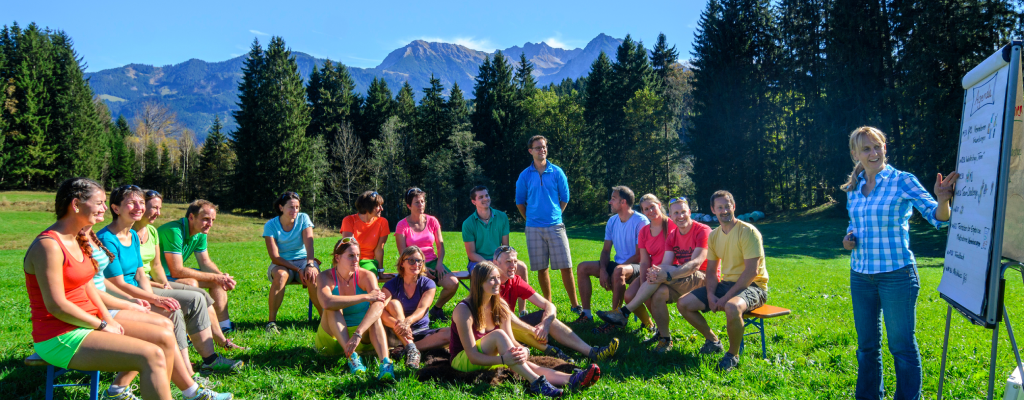Course Description
There is a growing body of evidence in the education sector and the scientific community of the effectiveness of outdoor nature-based learning approaches in tackling young people’s current issues related to demotivation, poor mental health and lack of self-improvement skills. Outdoor learning has been found to positively affect physical and mental well-being, stimulate curiosity and develop a sense of engagement with and appreciation of the surroundings that enhances their personal and social skills.
The course will prepare teachers to design their modules by combining formal education practices with outdoor learning methodologies. Participants will experience first-hand tools and teaching methods to bring innovation to their curricula and foster students’ learning and motivation. The sessions will also include an overview of the most useful digital tools for teaching in a variety of outdoor environments, and participants will learn and discuss how to incorporate technology to support and enhance their teaching experience.
During the course, teachers will get a significant insight into the Irish outdoor education model, as well as learn how to deliver educational activities in two different outdoor contexts based on their course subject: the urban and the natural setting.
The methodology combines theoretical sessions with creative workshops, practical examples of activities and constructive debates that will guide participants in acquiring skills and exchanging best practices with teachers from across Europe.
The schedule also includes cultural activities that will allow participants to explore and experience Irish culture and the vibrant city of Dublin.
Course Content
- Introduction to Outdoor Education: principles, benefits, types of locations and teaching methodologies
- Session on safety measures and risk assessment
- Outdoor education in an urban setting: city exploration sessions and practical activities
- Outdoor education in a natural setting: nature exploration sessions and practical activities
- Digital tools for outdoor education
- Outdoor education and well-being: activities and techniques to enhance students’ well-being and soft skills
- Workshops on adapting outdoor education activities to teachers’ context/curricula and learners’ age group
- Sessions on the Irish outdoor education model
- Workshop on evaluation criteria and methods for outdoor learning activities
Learning Outcomes
At the end of the course delegates will:
- Learn the principles of experiential learning and its benefits for students
- Get acquainted with different outdoor settings and elements useful for learning
- Learn safety measures and risk assessment criteria
- Experience first-hand practical outdoor educational activities and methods
- Acquire skills and knowledge to successfully design outdoor activities tailored to students’ profiles and learning outcomes
- Learn how to evaluate outdoor activities
- Improve basic digital skills and knowledge on how to integrate ICT tools in teaching
- Understand the potential of outdoor education to increase students’ motivation, well-being and personal development
- Learn about the Irish outdoor education model
- Exchange best practices with teachers from across Europe
- Improve their English language skills
Assessment and Certificates
Assessment of performance will be through delegate-completed portfolio of work. The final course certification for successful completion is a college-issued “Course Certificate of Completion”, for each module studied. In addition, where applicable, delegates will receive relevant EuroPass certificates.
![]()

